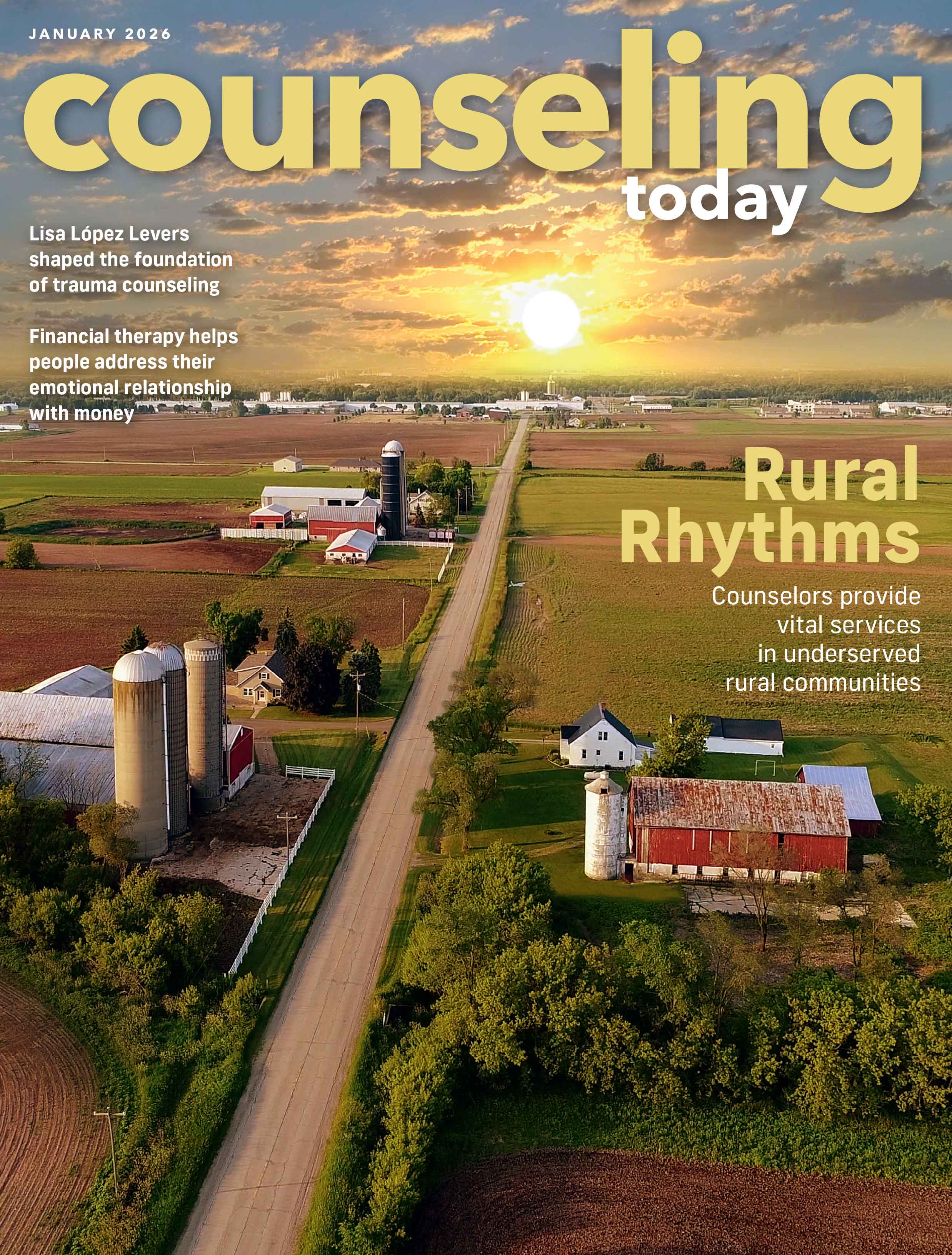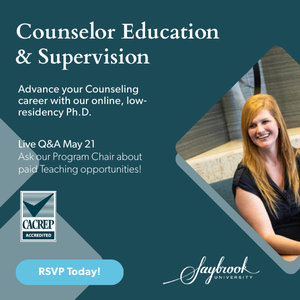Explore Counseling Today Articles
Advocacy Update: Building stronger coalitions in counseling advocacy
Oct 6, 2023, 00:00 AM
Title :
Advocacy Update: Building stronger coalitions in counseling advocacy
By line :
In an era marked by unprecedented partisan politics and uncertainty, the significance of building state and local coalitions for mental health counselors is amplified by the potential of networked coalitions. These innovative coalitions, rooted in the concept of building bridges, play a pivotal role in unifying professionals, transcending divisive political boundaries and addressing the pressing mental health needs of communities.
Throughout history, the power of building bridges has been evident in numerous instances of impactful social transformation that left indelible marks. From the inception of contraceptives to the establishment of the National Park Service, genuine change has emerged through the act of bridging gaps among individuals, communities, organizations and sectors of society. Although the outcomes might seem clear in retrospect, this process of bridging was far from facile, often demanding that individuals and groups grapple with conflict and reach compromise.
A contemporary illustration exemplifying the pivotal role of bridging in catalyzing societal change is the remarkable success achieved in Florida’s voting rights. In November 2018, Amendment 4 was ratified, restoring voting rights to individuals with felony convictions who have fulfilled their entire sentence, including parole and probation. With a 60% affirmative voter majority required for the proposition to pass, mere mobilization of expected advocates proved insufficient. Victory depended on adeptly bridging unlikely collaborators. The Florida Rights Restoration Coalition Education Fund campaign orchestrated an alliance among diverse supporters, including the American Civil Liberties Union, Christian Coalition of America and Freedom Partners. Although the coalition members did not agree on every issue, they coalesced around a fundamental shared objective. By surmounting their differences, they pursued a collective mission that subsequently revolutionized the lives of individuals who had long been excluded from the democratic process.
In the context of mental health counselors navigating political divides and pervasive uncertainty, the principles of networked coalitions offer a promising avenue. A networked coalition typically refers to a group or alliance of individuals, organizations and other entities that collaborate and work together to pursue shared interests or achieve a common goal. What distinguishes a networked coalition from a traditional coalition is the emphasis on interconnectedness and collaboration facilitated by modern communication technologies, especially the internet and social media. By embracing broader causes, nurturing relationships and empowering decentralized leadership, networked coalitions present a dynamic framework for surmounting complexity and instigating real change. Networked coalitions resonate with contemporary challenges, offering a pathway to transcend divisions, promote inclusivity and contribute positively to the well-being of individuals and communities.
Against this backdrop, as political polarization escalates, mental health counselors are able to navigate a multifaceted terrain where policies and funding for mental health services undergo tumultuous fluctuations through broad coalitions. Amid this volatility, state and local coalitions offer a consolidated platform, enabling counselors to champion consistent, evidence-based policies and to secure resources. Through the pooling of expertise and the leveraging of collective influence, counselors foster a fortified voice that transcends party lines, championing the shared objective of enhanced mental health care.
Coalition building follows a strategic trajectory that encapsulates essential steps for effective collaboration:
Dominique N. Marsalek is the state government affairs manager at the American Counseling Association. Contact her at dmarsalek@counseling.org.
Opinions expressed and statements made in articles appearing on CT Online should not be assumed to represent the opinions of the editors or policies of the American Counseling Association.
- Define your goal: Clearly articulate your primary objective. A shared vision will guide your coalition’s efforts and unify members toward a common purpose.
- Identify key players: Recognize individuals, leaders and stakeholders that have the potential to contribute meaningfully. Their diverse perspectives and expertise enrich the coalition’s collective insights.
- Mobilize and recruit: Activate your coalition by mobilizing members. Engage in purposeful recruitment efforts to enlist individuals who share your goal and bring unique skills to the table.
- Set short-term goals: Focus on achievable short-term goals that resonate with your coalition’s overarching objective. These milestones provide a sense of accomplishment and foster momentum.
- Assemble core group: Establish a core group within the coalition comprising dedicated members who steer initiatives, make decisions and drive progress.
- Host an inaugural event: Organize an inaugural event to bring coalition members together. This event serves as a platform to share insights, build connections and establish a sense of community.
- Follow up and sustain: Maintain the coalition’s vigor by nurturing ongoing communication and collaboration. Regular follow-ups, meetings and engagement initiatives keep members involved and invested.
Dominique N. Marsalek is the state government affairs manager at the American Counseling Association. Contact her at dmarsalek@counseling.org.
Opinions expressed and statements made in articles appearing on CT Online should not be assumed to represent the opinions of the editors or policies of the American Counseling Association.
Department :
Categories :
- Government Agencies
- Professional Counseling
Tags :
audiences :
Contributors
Search CT Articles
Filter CT Articles
Current Issue
Sign Up for Updates
Keep up to date on the latest in counseling practice. Sign up to receive email updates from Counseling Today.



